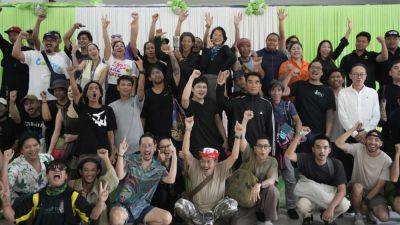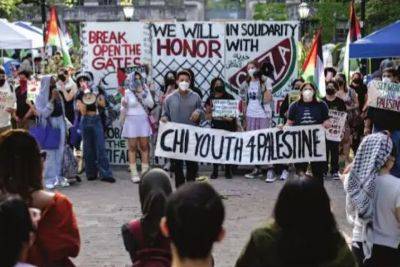A massive Powerball win draws attention to a little-known immigrant culture in the US
SALEM, Ore. (AP) — Cheng “Charlie” Saephan wore a broad smile and a bright blue sash emblazoned with the words “Iu-Mien USA” as he hoisted an oversized check for $1.3 billion above his head.
The 46-year-old immigrant’s luck in winning an enormous Powerball jackpot in Oregon earlier this month — a lump sum payment of $422 million after taxes, which he and his wife will split with a friend — has changed his life. It also raised awareness about Iu Mien people, a southeast Asian ethnic group with origins in China, many of whose members fled from Laos to Thailand and then settled in the U.S. following the Vietnam War.
“I am born in Laos, but I am not Laotian,” Saephan told a news conference Monday at Oregon Lottery headquarters, where his identity as one of the jackpot’s winners was revealed. “I am Iu Mien.”
During the Vietnam War, the CIA and U.S. military recruited Iu Mien in neighboring Laos, many of them subsistence farmers, to engage in guerrilla warfare and to provide intelligence and surveillance to disrupt the Ho Chi Minh Trail that the North Vietnamese used to send troops and weapons through Laos and Cambodia into South Vietnam.
After the conflict as well as the Laotian civil war, when the U.S.-backed government of Laos fell in 1975, they fled by the thousands to avoid reprisals from the new Communist government, escaping by foot through the jungle and then across the Mekong River into Thailand, according to a history posted on the website of Iu Mien Community Services in Sacramento, California. More than 70% of the Iu Mien population in Laos left and many wound up in refugee camps in Thailand.
Thousands of the refugees were allowed to come to the U.S., with the first waves arriving in the late 1970s and most settling







